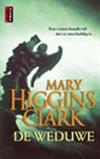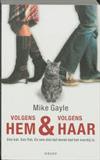
The Heart of the Matter
Registered by Fellraven of Redditch, Worcestershire United Kingdom on 8/5/2005
 This Book is Currently in the Wild!
This Book is Currently in the Wild!
 This Book is Currently in the Wild!
This Book is Currently in the Wild!
2 journalers for this copy...
50p from a Redditch charity shop. Inside the front cover is written the following:
Helen
18 York House
Upper Montago St
London
W1H 1FR.
A fascinating glimpse of one of this book's previous owners.
Helen
18 York House
Upper Montago St
London
W1H 1FR.
A fascinating glimpse of one of this book's previous owners.
Journal Entry 2 by Fellraven from Redditch, Worcestershire United Kingdom on Wednesday, May 17, 2006
Having discovered Graham Greene last year and been much impressed with his Stamboul Train I'd picked this up a while ago and looked forward to it immensely. It was one of two novels with colonial themes which I took on holiday to Sri Lanka (the other being E M Forster's A Passage to India) as I hadn't been able to find anything actually set in Sri Lanka itself.
Unaccountably, having started it towards the end of my holiday, I found myself somewhat bogged down in this novel and I'm not sure why. Greene seems to be a master of packing an awful lot, in terms of theme, character and story, into a relatively short page count, which tends to make his novels quite intense and demanding, so boredom isn't the issue.
What I found somewhat alienating was the strongly, even freakishly, Catholic theme and undertow to the story. Scobie is portrayed as priest-ridden and a prisoner of the religion he has embraced in order to marry a wife he's now bored with, though he won't admit it to himself or to her. Louise is an hysteric, in love with the idea of her own "artisticness", but alienated by self-pity from a community which should offer support, and it is that self-pity, and the obligation Scobie ultimately feels to mitigate it, which triggers the sequence of events which unfold thereafter.
Is Greene known, as Evelyn Waugh was, for anti-Catholicism? I don't know, but the picture he paints of the repressive, brainwashing and ultimately sterile church is unlikely to have anyone rushing to join it, and yet at the end it is the Catholic Priest who seems to hold out hope for Scobie. It's difficult to review this novel meaningfully without packing the review with spoilers, even though the outcome doesn't come as much of a surprise.
Unaccountably, having started it towards the end of my holiday, I found myself somewhat bogged down in this novel and I'm not sure why. Greene seems to be a master of packing an awful lot, in terms of theme, character and story, into a relatively short page count, which tends to make his novels quite intense and demanding, so boredom isn't the issue.
What I found somewhat alienating was the strongly, even freakishly, Catholic theme and undertow to the story. Scobie is portrayed as priest-ridden and a prisoner of the religion he has embraced in order to marry a wife he's now bored with, though he won't admit it to himself or to her. Louise is an hysteric, in love with the idea of her own "artisticness", but alienated by self-pity from a community which should offer support, and it is that self-pity, and the obligation Scobie ultimately feels to mitigate it, which triggers the sequence of events which unfold thereafter.
Is Greene known, as Evelyn Waugh was, for anti-Catholicism? I don't know, but the picture he paints of the repressive, brainwashing and ultimately sterile church is unlikely to have anyone rushing to join it, and yet at the end it is the Catholic Priest who seems to hold out hope for Scobie. It's difficult to review this novel meaningfully without packing the review with spoilers, even though the outcome doesn't come as much of a surprise.
Picked this up at the Unconvention because it is on some of my
reading lists:
* Time 100 Best English-language Novels since 1923 [#38]
* Random House 100 Best English-language novels of the 20th Century [#40]
* 1001 Books You Must Read Before You Die [#451]
reading lists:
* Time 100 Best English-language Novels since 1923 [#38]
* Random House 100 Best English-language novels of the 20th Century [#40]
* 1001 Books You Must Read Before You Die [#451]
I agree with Fellraven, both that this is an intense and demanding book and also that it is difficult to comment on it in any detail without revealing too much of the plot to future readers. What I can say though, is that this is a novel which charts the moral change of the protagonist, Scobie, and the connected unravelling of his life. The morals in question are largely those of the Roman Catholic church of the time, but also of british (colonial) society, both of which place strictures on him. These two, combined with the setting in Africa, create, at least for me, a very alien place by geographically and psychologically. This novel will stay in my mind for some time.














